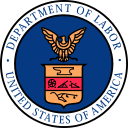 This year, the Department of Labor (DOL) announced new regulations that would double the minimum threshold for a salaried employee exempt from overtime from $455 per week to $913 per week (or $47,476). The regulations also tied the salary threshold to inflation with an automatic adjustment every three years. These changes are scheduled to take effect December 1, 2016, and more details can be found on the DOL’s website, here, or our firm’s client alert on the subject, here.
This year, the Department of Labor (DOL) announced new regulations that would double the minimum threshold for a salaried employee exempt from overtime from $455 per week to $913 per week (or $47,476). The regulations also tied the salary threshold to inflation with an automatic adjustment every three years. These changes are scheduled to take effect December 1, 2016, and more details can be found on the DOL’s website, here, or our firm’s client alert on the subject, here.
Recently, there have been two separate legal efforts to stop the increase on December 1. First, the House of Representatives passed a bill on September 28, 2016 that would delay the increase by six months. The bill has not been taken up by the Senate, where its chances of passing are tougher. Regardless of the result in Congress, it is doubtful the President would sign a bill delaying one of his administration’s most important accomplishments (his press secretary has already said it would be vetoed). Put simply, employers should not expect a new law which would delay the December 1 deadline.
The second effort to stop the DOL regulations is a legal challenge filed in a federal court in East Texas by 21 states and more than 50 business groups. Challenging the DOL’s authority to raise the minimum salary threshold, however, is not likely to be successful. The agency has raised the threshold multiple times since the law’s creation, under both Democratic and Republican Presidents. That said, there is a serious legal question regarding whether the DOL has the authority to tie the minimum salary to inflation and create, by regulation, an automatic increase every three years. This is unprecedented, and the court may find that this section of the regulation overstepped the agency’s authority under the law. If that happens, it will be of little value to employers as the December 1 deadline will be unaffected, as the first automatic increase is not scheduled until January 2020.


Leave a Reply